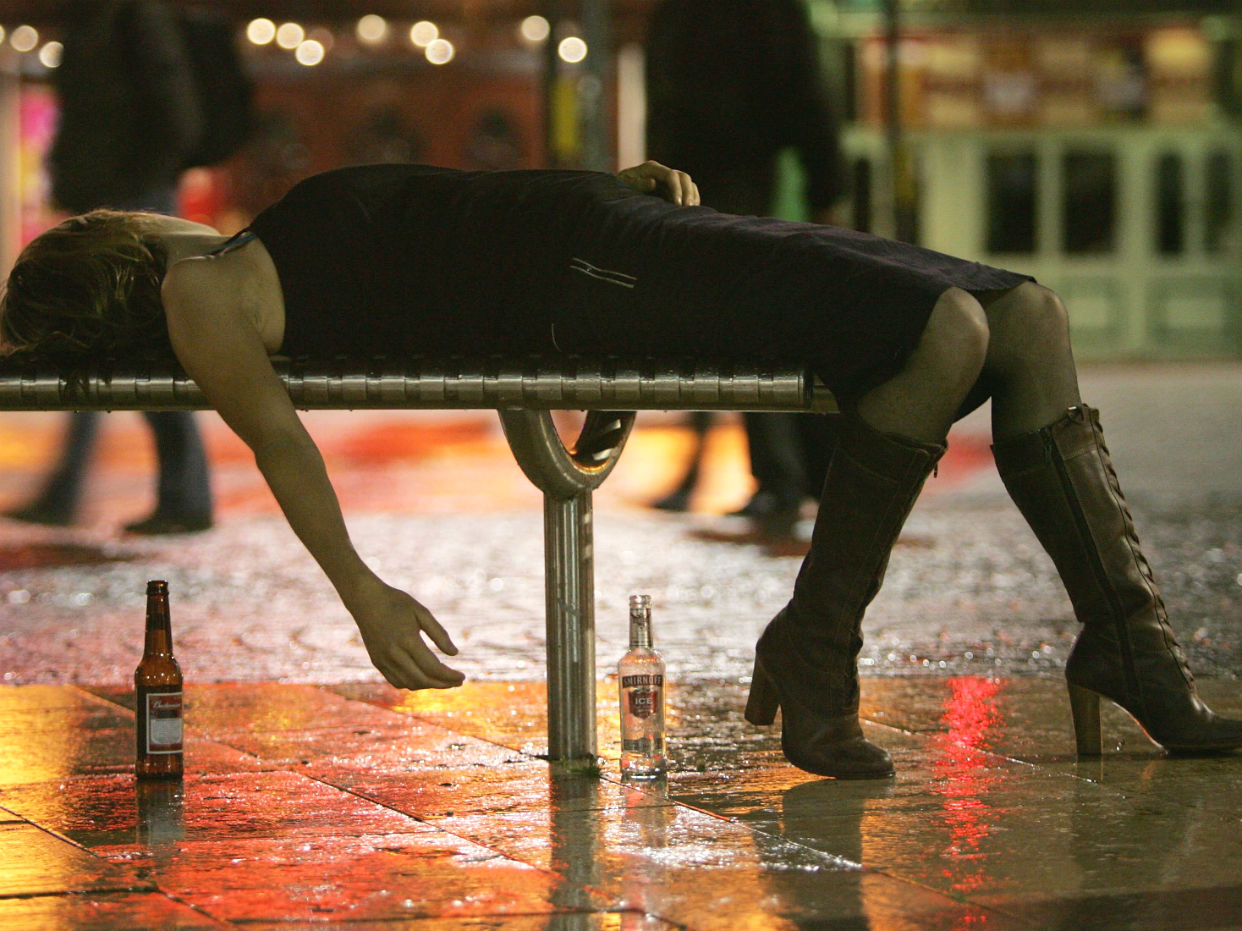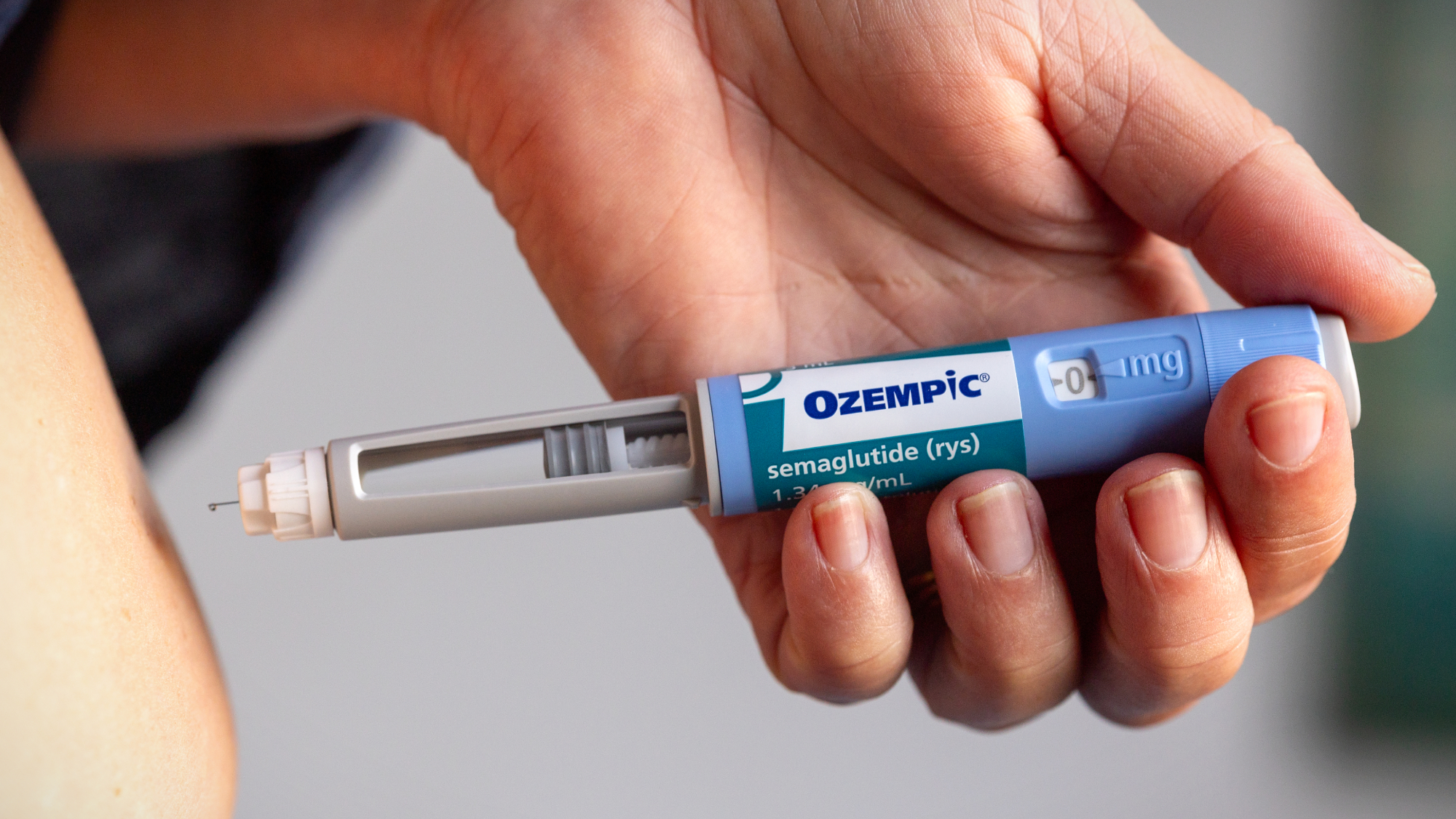NHS funding Christmas ‘drunk tanks’
Extra measures to keep revellers out of A&E as ‘Mad Friday’ arrives

A free daily email with the biggest news stories of the day – and the best features from TheWeek.com
You are now subscribed
Your newsletter sign-up was successful
The NHS is helping to pay for so-called drunk tanks in city centres in a bid to prevent intoxicated Christmas revellers from clogging up hospitals.
NHS England has set aside £300,000 for regional ambulance trusts to set up the holding areas, staffed by a combined force of professional paramedics and St Johns Ambulance volunteers.
The pop-up units provide a supervised area where those who have overindulged can be assessed and offered basic treatment, as well as providing a safe place to “sleep it off”.
The Week
Escape your echo chamber. Get the facts behind the news, plus analysis from multiple perspectives.

Sign up for The Week's Free Newsletters
From our morning news briefing to a weekly Good News Newsletter, get the best of The Week delivered directly to your inbox.
From our morning news briefing to a weekly Good News Newsletter, get the best of The Week delivered directly to your inbox.
Drunk tanks are already used by individual ambulance trusts, but this is the first time the system is being coordinated on nationwide basis. The move comes in response to the annual spike in alcohol-related incidents over the festive period.
As the London Evening Standard notes: “This Friday, the last before the Christmas, is dubbed ‘Mad Friday’ as workers across the country celebrate the start of the holiday season, often with heavy drinking.”
So far, trusts covering London, Exeter, Bristol, Oxford, Hereford, Norwich, Blackpool and Southampton have confirmed that they are participating in the scheme.
“Most of these areas already provide drunk tanks in their city or town centres on Fridays and Saturdays, and the funding will enable them to expand their services over the holiday season,” the BBC reports.
A free daily email with the biggest news stories of the day – and the best features from TheWeek.com
The extra provision “should help take the pressure off hospital and 999 services”, the broadcaster adds.
NHS England chief executive Simon Stevens said: “NHS does not stand for ‘National Hangover Service’, which is why we want to help other organisations take care of those who just need somewhere safe to get checked over and perhaps sleep it off.”
Research indicates that up to 70% of A&E admissions on Friday and Saturday nights are alcohol related, says the Standard.
-
 ‘Restaurateurs have become millionaires’
‘Restaurateurs have become millionaires’Instant Opinion Opinion, comment and editorials of the day
-
 Earth is rapidly approaching a ‘hothouse’ trajectory of warming
Earth is rapidly approaching a ‘hothouse’ trajectory of warmingThe explainer It may become impossible to fix
-
 Health insurance: Premiums soar as ACA subsidies end
Health insurance: Premiums soar as ACA subsidies endFeature 1.4 million people have dropped coverage
-
 A real head scratcher: how scabies returned to the UK
A real head scratcher: how scabies returned to the UKThe Explainer The ‘Victorian-era’ condition is on the rise in the UK, and experts aren’t sure why
-
 How dangerous is the ‘K’ strain super-flu?
How dangerous is the ‘K’ strain super-flu?The Explainer Surge in cases of new variant H3N2 flu in UK and around the world
-
 The ‘menopause gold rush’
The ‘menopause gold rush’Under the Radar Women vulnerable to misinformation and marketing of ‘unregulated’ products
-
 How the care industry came to rely on migrant workers
How the care industry came to rely on migrant workersThe Explainer Government crackdown on recruiting workers abroad risks deepening care sector crisis, industry leaders warn
-
 Could medics' misgivings spell the end of the assisted dying bill?
Could medics' misgivings spell the end of the assisted dying bill?Today's Big Question The Royal College of Psychiatrists has identified 'serious concerns' with the landmark bill – and MPs are taking notice
-
 Washwood Heath: Birmingham's pioneering neighbourhood health service
Washwood Heath: Birmingham's pioneering neighbourhood health serviceIn the Spotlight NHS England chair says there is a 'really good argument this is the model for the future'
-
 Ozempic can curb alcohol cravings, study finds
Ozempic can curb alcohol cravings, study findsSpeed read Weight loss drugs like Ozempic and Wegovy may also be helpful in limiting alcohol consumption
-
 The UK's first legal drug consumption room
The UK's first legal drug consumption roomThe Explainer 'Potentially transformative moment in UK drugs policy' as The Thistle opens in Glasgow